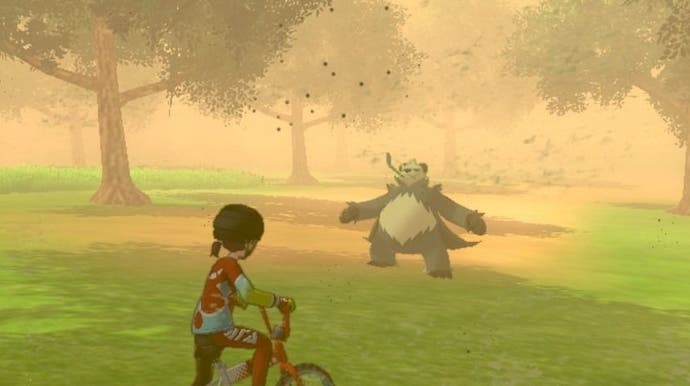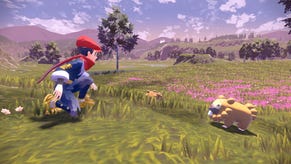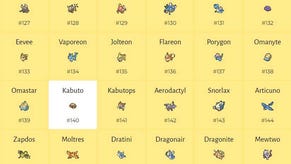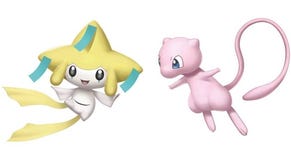Pokémon Sword and Shield Weather types, how to change the weather and weather battle conditions explained
Everything you need to know about the weather in Pokémon Sword and Shield.
The weather plays an important part of your adventures in the Wild Area in Pokémon Sword and Shield.
Unlike routes and town, which have a set weather, the weather in each location of the Wild Area changes daily. This means that it could be snowing in the Dusty Bowl today, but raining tomorrow.
It is possible to change the weather in Pokémon Sword and Shield, allowing you to catch weather specific Pokémon and experience special battle conditions.
On this page:
What types of weather exist in Pokémon Sword and Shield?
There are nine different types of weather you can experience in Pokémon Sword and Shield. Each one will change the appearance of the Wild Area, while also possibly changing the battlefield and cause different Pokémon to appear.
As you progress further in the game, you will also unlock additional types of weather, allowing you to catch new Pokémon.
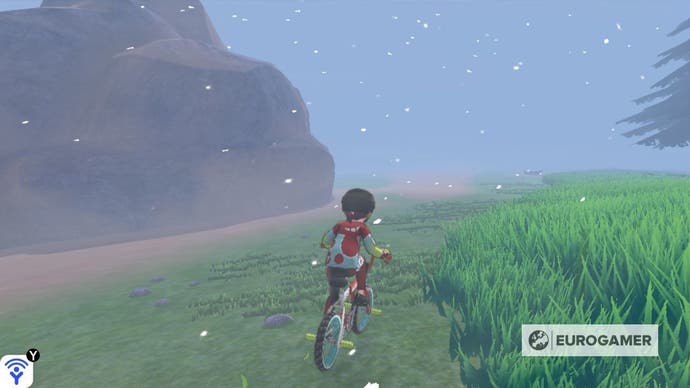
Here are the types of weather that are available from the beginning of Pokémon Sword and Shield:
- Harsh Sunlight
- Overcast
- Normal Weather (Sunny)
- Raining
- Snowing
- Thunderstorm
After defeating the first three Gyms, you unlock two more additional types of weather:
- Sandstorm
- Snowstorm
Once you've become the Champion of the Galar region, you'll also unlock fog.

Weather battle condition affects in Pokémon Sword and Shield
Certain weather types will alter the conditions of a Pokémon battle in the Wild Area, as well as the Pokémon you encounter.
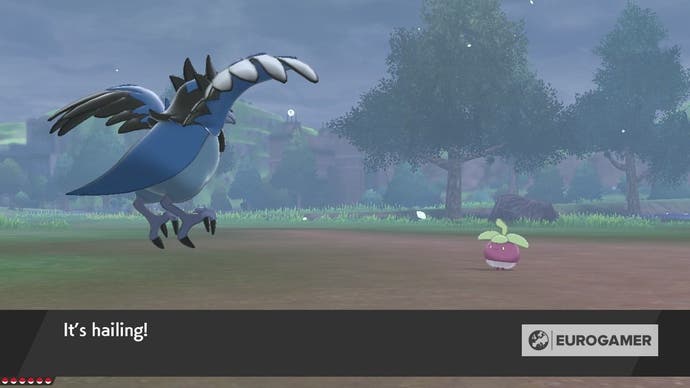
Your Pokémon will only be affected by a weather battle condition if they're battling in an area that is currently being affected by that specific weather type or a Pokémon uses a move or ability that changes the weather condition. These moves and abilities won't, however, change the weather outside of the battle.
Typically weather conditions last for five turns of a battle, but you can get specific items, such as the Heat Rock, which will extend these conditions to eight turns.
Here are the four different weather types that can affect your Pokémon in battle:
| Weather Type | Effects | Moves that cause it | Abilities that cause it |
|---|---|---|---|
| Harsh Sunlight | Boosts fire-type moves Lowers water-type moves Lowers accuracy of Hurricane and Thunder Moonlight, Morning Sun and Synthesis restore more HP Prevents Pokémon from becoming frozen | Sunny Day Max Flare | Drought |
| Rain | Boosts water-type moves Lowers fire-type moves Hurricane and Thunder become 100% accurate Moonlight, Morning Sun and Synthesis restore less HP | Rain Dance Max geyser | Drizzle |
| Sandstorm | Damages all non-ground, rock or steel-type Pokémon Boosts Special Defence of rock-type Pokémon Moonlight, Morning Sun and Synthesis restores less HP Shore Up restores more HP | Sandstorm Max Rockfall | Sand Spit Sand Stream |
| Snowstorm | Damages all non-ice-type Pokémon each turn Blizzard becomes 100% accurate Moonlight, Morning Sun and Synthesis restore less HP | Hail Max Hailstorm | Snow Warning |
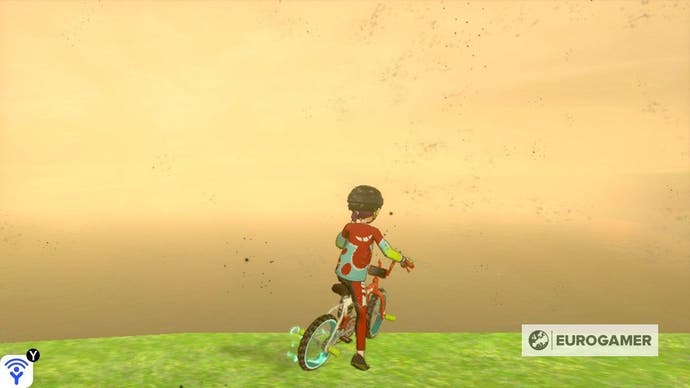
Certain Pokémon abilities are also activated by different weather conditions. These abilities are:
| Ability Effect | Harsh Sunlight | Rain | Sandstorm | Snowstorm |
|---|---|---|---|---|
| Boosts Speed | Chlorophyll | Swift Swin | Sand Rush | Slush Rush |
| Restores HP | N/A | Rain Dish Dry Skin | N/A | Ice Body |
| Boosts power | Solar Power Flower Gift | N/A | Sand Force | N/A |
| Heals status conditions | N/A | Hydration | N/A | N/A |
| Protects from status conditions | Leaf Guard | N/A | N/A | N/A |
Locked weather days in Pokémon Sword and Shield explained
Locked weather days refer to the first day of every month when the Wild Area will be covered in only one type of weather effect.
The only expectation is January 1st, which starts the new year off as usual with a variety of different weather types.
The locked weather days and their associated weather are:
| Date | Weather Type |
|---|---|
| January 1st | N/A |
| February 1st | Snowstorm |
| March 1st | Overcast |
| April 1st | Sandstorm |
| May 1st | Normal Weather (Sunny) |
| June 1st | Fog |
| July 1st | Harsh Sunlight |
| October 1st | Raining |
| November 1st | Thunderstorm |
| December 1st | Snowing |
Thank you to AnaMain300 for the help with this information.
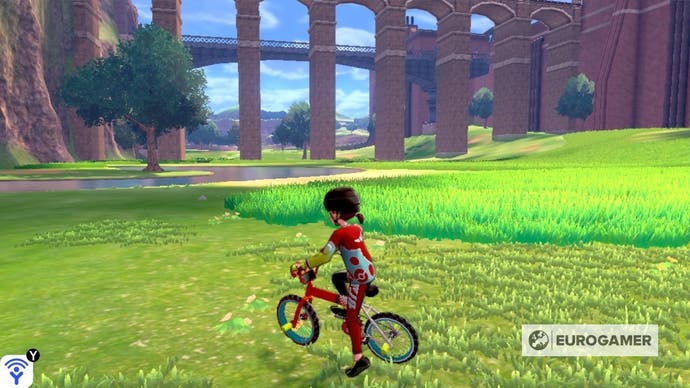
If you want to take advantage of these days, for either catching a specific Pokémon or simply aesthetics, then all you have to do is change the date on your Nintendo Switch.
To do this enter the System Settings for your Nintendo Switch. From there scroll down to the System option and select the Date and Time option.
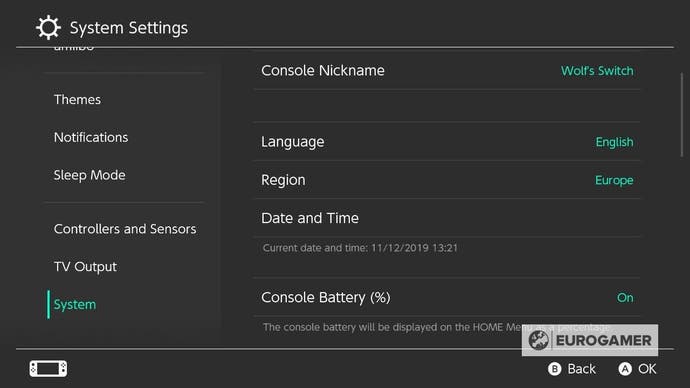
Next you'll want to turn off Synchronise Clock via Internet. This will allow you to manually change the date or time to whatever you want, effectively making you the weather god of the Galar region.
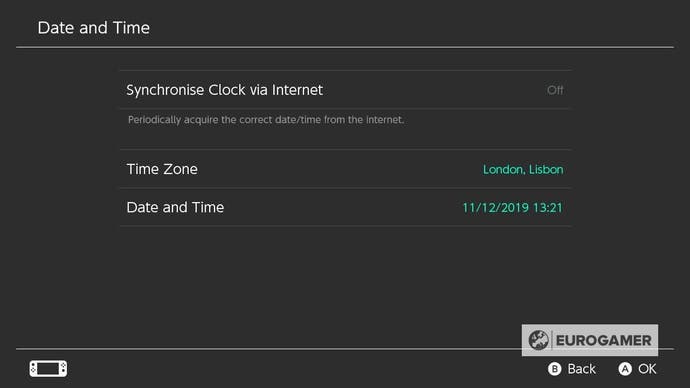
Finally, all you have to do is change the date to whichever locked weather day you want, leave the System Settings and start playing either Pokémon Sword or Shield.
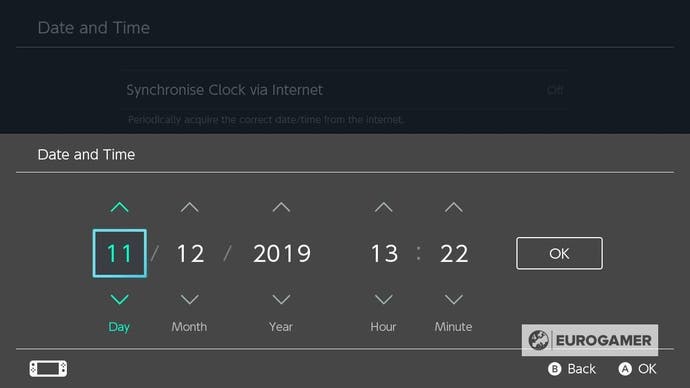
With it finally in the wild, here's how to start the Crown Tundra DLC and our full Pokémon Crown Tundra walkthrough. Plus, here's how to catch Calyrex, Glastrier and Spectrier, the Regieleki and Regidrago puzzle solution and Regirock, Regice, Registeel locations, details on how to catch Legendary Birds Articuno, Zapdos and Moltres in the Crown Tundra, the Ultra Beasts and Necrozma adventure, Dynamax Adventures, including the legendries you can catch on these adventures, and the new Crown Tundra Pokédex and returning Pokémon explained. For Isle of Armor players, here's how to find the Slowpoke, where to find Max Mushroom locations, and how to get Kubfu, become best friends and evolve it, plus all Diglett locations too! For the base game, here's info on the ability to transfer Pokémon to Pokémon Home, the Wild Area, lists of all TM locations and TRs, all Galarian forms and finally our main Pokémon Sword and Shield walkthrough for the whole game.
How to check the weather in the Wild Area in Pokémon Sword and Shield explained
There are a couple of different methods you can use to check the weather in the Wild Area in Pokémon Sword and Shield.
The first is to simply visit the Wild Area and wander about - you'll quickly realise what weather you're experiencing.
The second way is to open the Town Map from the X menu.

Once this map is open, press the + button to show the weather for each route and Wild Area location.
You can do a very similar thing with the Pokédex as well.
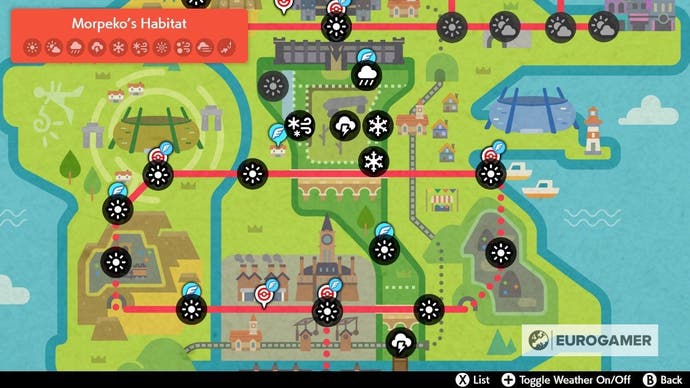
Simply select the Habitat Map for any Pokémon within the Pokémon and then, once the map is open, press + to toggle the weather on and off. You can also access the Flying Taxi from this map, allowing you to quickly reach the right location, and weather, for you.
